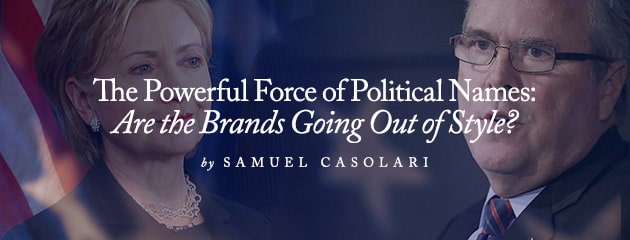
The 2014 midterm elections came to an end with the crushing defeat of Sen. Mary Landrieu in Louisiana. Her loss, however, was part of a series of defeats for political families over the last two midterm elections.
In Louisiana, Landrieu is part of a politically connected and influential family whose political presence extended several decades in Louisiana and New Orleans politics. Her brother is currently mayor of New Orleans and her father was a cabinet official in Jimmy Carter’s administration.
In Arkansas, Tom Cotton defeated Mark Pryor by a resounding margin. The Pryor name goes back to the 1960s when Sen. Pryor’s father was first elected to the Congress.
Similarly, Jason Carter and Michelle Nunn were heirs to political families whose presence in Georgia politics started in the 1960s.
Despite politically popular and well-known political brands, the names of Landrieu, Pryor, Nunn, or Carter—all Democrats—could not overcome the unpopularity of President Obama and the Democratic Party in the South. These names could not provide the political cover for liberal positions on the issues.
The Republican Party was not immune either. With a new base of conservative voters growing in 2010, Republican primary voters also rejected political brands in favor of new, more conservative candidates.
In 2010, Republicans such as Thurmond, Domenici, and even Murkowski were rejected by Republican primary voters. Richard Nixon’s grandson failed to win a Republican House primary in New York.
This is good for our democracy.
When Tim Scott defeated Paul Thurmond in a South Carolina House primary in 2010 the stage was set for a new and exciting conservative leader who four years later would become the first African American senator elected in the deep South since Reconstruction.
Political names and brands are powerful forces in an election. The name is not only a magnet for money and support, but also provides a comfort level for voters that other candidates would have to work very hard for. In some instances the brand helps to obscure unpopular positions or views in which the candidate really believes.
To be sure, names like Cuomo, Brown, and even Bush still draw support and win elections. George P. Bush’s recent victory for Texas Land Commissioner marks a fourth generation of service for his family in public office.
The question for 2016 is whether America will look past political brands and choose candidates that are new and not necessarily connected. Or, will the political brands of Bush and Clinton be the only choice for the American voter?




